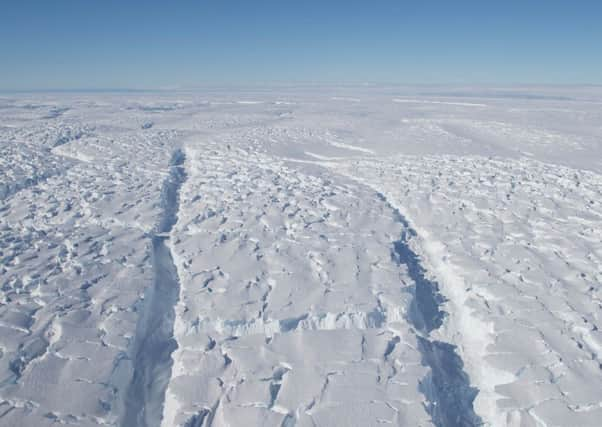Glacier to be studied by degrees as thermometers fitted to seals


The Thwaites Glacier in West Antarctica, is known as “the Achilles heel of the Antarctic ice-sheet”. It is particularly sensitive and experts say the indications are that the process of collapse has already begun, with the potential to cause a worldwide sea level rise of more than 3ft by the end of the century and three times that in the longer term.
The plan to use seals to measure the ocean’s heat - a major influence on the melting rate of the floating part of the glacier - aims to get round the inaccessabilty of the area for research ships during the winter when the ocean surface is covered by sea ice.
Advertisement
Hide AdAdvertisement
Hide AdA team of scientists from St Andrews University, collaborating with other experts from Finland, Alaska, East Anglia, and Michigan, will also use computer modelling to examine how break-up of the glacier could increase the rate of ice flow into the ocean.
Doug Benn, Professor of Environmental Change at St Andrews, said yesterday: “The Thwaites Glacier has been thinning and speeding up due to increased melting beneath its floating tongue.
“Our concern is that breakup of the ice tongue could greatly accelerate the rate of ice loss in the near future, with a big impact on sea level. A rise of one metre in sea levels would mean a greater frequency of coastal flooding during extreme weather events, such as storm surges, hurricanes, and when big river flows coincide with high tides.”
Dr Lars Boehme, of St Andrews University’s Sea Mammal Research Unit, said: “We will attach animal-borne instruments to Weddell and Elephant seals in this region.
“These tiny sensors, which are temporarily glued to the animals’ fur and fall off during moulting, will allow us to collect essential oceanographic observations during the winter time, as well as providing a better indication of how vulnerable the seals might be to climate change.”
The collapse of the Thwaites Glacier in West Antarctica could significantly affect global sea levels. It holds enough water to raise global sea level by almost 18 inches, but its collapse would also destabilise other parts of the ice sheet, with a total potential sea level rise of nearly 10ft.
The University of St Andrews has won NERC (Natural Environment Research Council) grants of £1m for the part it leads in the International Thwaites Glacier Collaboration which aims to understand what is happening and predict when the glacier will collapse in response to climate change.
The joint UK-US research programme, worth £20 million in all, launched yesterday and is one of the most detailed and extensive examinations of a massive Antarctic glacier ever undertaken.